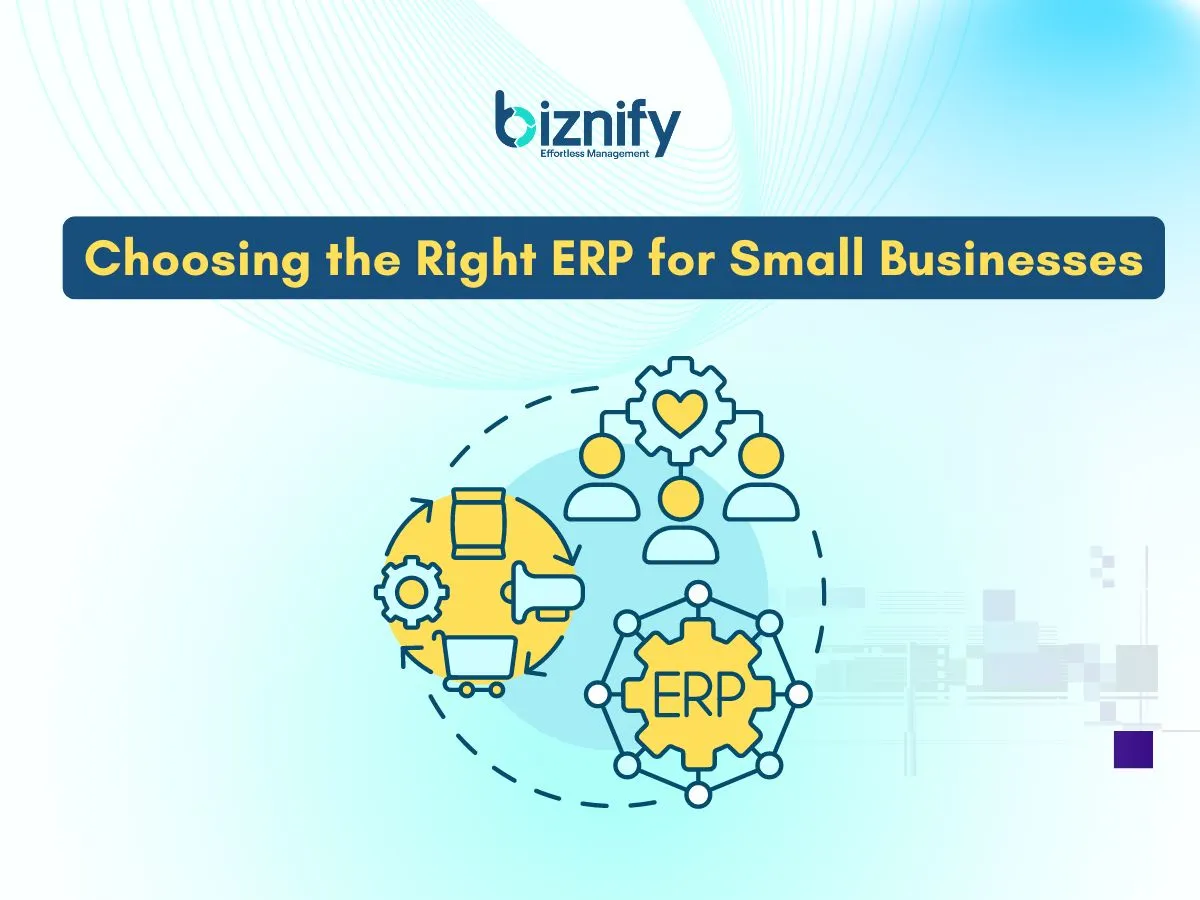
Choosing the right ERP software for small businesses is more than just picking a tool; it's about finding a solution that fits your business's unique needs and future growth. With so many ERP platforms available, from affordable cloud-based ERP solutions to customizable systems, the process can seem overwhelming.
This guide will walk you through the essential ERP selection criteria, compare top ERP systems for small enterprises, and help you weigh the benefits of cloud vs. on-premise ERP options. We’ll also explore key features that make ERP software ideal for growing businesses, as well as the cost considerations and implementation steps that small companies must navigate.
By the end of this article, you’ll have a clear understanding of how to choose an ERP vendor, integrate your new system with existing tools, and ensure a scalable ERP solution that drives your business forward. Let’s dive in!
ERP, or Enterprise Resource Planning, is a software solution that integrates all your business processes like finances, inventory, sales, and customer management into one streamlined system. Instead of using multiple tools, ERP centralizes your operations, providing a complete, real-time view of your business.
For small businesses, ERP systems offer significant advantages. They automate financial tasks, ensure accurate inventory tracking, and streamline sales processes. ERP also enhances customer relationship management by consolidating customer data, leading to better service and loyalty.
Importantly, ERP solutions are scalable, grow with your business, and adapt to new needs. In essence, ERP is a small business management software that boosts efficiency, supports growth, and helps you stay competitive in a fast-paced market.
Choosing the right ERP for small businesses can be a game-changer, streamlining operations, enhancing efficiency, and driving growth. However, with numerous options on the market, finding the perfect fit can feel overwhelming. To help you make an informed decision, here are the key factors you should consider.
Your small business might be small today, but you have big plans for the future. That's why it's essential to choose an ERP system that can scale with your business.
Look for solutions that allow you to add users, modules, and functionalities as your business grows, ensuring your ERP can support you at every stage.
For small businesses, ease of use is non-negotiable. You don't want to spend endless hours training your team on a complicated system.
Instead, opt for an ERP solution for small businesses that offers a clean, intuitive interface that your team can pick up quickly. The faster your team can get comfortable with the software, the sooner you can start reaping the benefits.
Budget is often a top concern for small businesses, so you'll need to find an ERP that delivers value without breaking the bank. Focus on the total cost of ownership, including implementation, maintenance, and any additional fees.
Look for cloud-based options, which typically offer lower upfront costs and flexible pricing plans that can be adjusted as your business evolves.
Your business is unique, and your ERP should reflect that. Seek out solutions that cater specifically to your industry, whether you're in retail, manufacturing, or services. Industry-specific features can help you get up and running quickly, offering tailored tools and processes that align with your business needs.
Chances are, you're already using several tools to run your business whether it’s accounting software, a CRM, or an e-commerce platform.
Your ERP should seamlessly integrate with these existing tools, allowing for a smooth flow of information across all your systems. Integration reduces manual data entry, minimizes errors, and ensures that all departments are on the same page.
As a small business, you might not have an in-house IT department to troubleshoot issues. That’s why strong customer support is crucial.
Choose an ERP provider that offers excellent customer service, with accessible support channels and comprehensive training resources. Whether it’s a quick question or a major technical issue, you want to know you can rely on your provider for prompt assistance.
Data security is vital, especially as cyber threats continue to rise. Your ERP system should have robust security features, including encryption, access controls, and regular updates to protect your sensitive data.
Additionally, ensure that the ERP complies with any industry-specific regulations or standards that your business must adhere to.
For many small businesses, a cloud-based ERP offers the best balance of flexibility, cost, and ease of maintenance. Cloud solutions typically require less upfront investment and allow you to access your data from anywhere with an internet connection.
However, if you have specific security needs or want more control over your system, an on-premise solution might be a better fit. Evaluate your business's needs and choose accordingly.
Every small business operates differently, and your ERP should be able to accommodate those differences. Look for a system that offers customization options, allowing you to tailor workflows, reports, and dashboards to fit your business processes.
This flexibility ensures that the ERP supports how you work, rather than forcing you to adapt to the software.
Technology is evolving rapidly, and your ERP needs to keep pace. Opt for a solution that is regularly updated and capable of integrating with emerging technologies like artificial intelligence, IoT, or advanced analytics.
A future-ready ERP will help your small business stay competitive and adapt to changes in the marketplace.
When deciding on an ERP solution, businesses often weigh the pros and cons of cloud-based ERP versus traditional on-premise systems. Cloud ERP offers flexibility, lower upfront costs, and easy access from anywhere, making it ideal for small businesses.
However, on-premise ERP provides greater control over data and customization but comes with higher initial costs and maintenance responsibilities. For businesses looking to streamline their operations with Biznify ERP, the cloud option may offer the best balance of cost and convenience, while on-premise could suit those prioritizing control and customization.
Choosing between industry-specific ERP systems and general-purpose ERPs is crucial. Industry-specific ERPs cater directly to the unique needs of your sector, offering tailored features that align with industry standards.
On the other hand, general ERP systems offer versatility, making them suitable for businesses operating across multiple industries. Biznify ERP solutions can be customized to fit the specific demands of your industry, ensuring you get the best of both worlds.
For any ERP solution to be effective, it must offer robust customization and integration capabilities. Biznify ERP excels in allowing businesses to tailor the system to their specific needs and integrates seamlessly with existing tools, ensuring smooth operations and scalability as your business grows.
Customization ensures that the ERP aligns perfectly with your workflows, while easy integration minimizes disruptions and enhances overall efficiency.
Before diving into an ERP system, start with a thorough needs analysis and market research. Identify your business’s specific requirements and pain points to ensure the ERP you choose addresses these needs.
Research different ERP systems to understand their features, benefits, and how they align with your business goals. This careful planning lays a strong foundation for a successful ERP implementation.
Choosing the right ERP vendor is crucial for a smooth implementation. Look for a reputable vendor that offers a user-friendly ERP for small teams and matches your business needs.
Evaluate vendors based on their track record, customer support, and ability to customize the ERP to fit your specific requirements. Ensure they provide a clear implementation plan and ongoing support to help you through the process.
The ERP implementation process involves several key phases. Begin with data migration, ensuring that all your existing data is accurately transferred to the new system.
Follow this with comprehensive training for your team to ensure they are comfortable using the new ERP. Finally, go live with the system and monitor its performance to address any issues quickly.
For a smooth transition, consider cost-effective ERP implementation strategies that minimize disruption and control expenses. A well-executed ERP rollout will streamline your operations and set your business up for long-term success.
Implementing an ERP system often comes with its share of challenges. Resistance to change is one of the most common hurdles, as employees may be reluctant to adapt to new processes. Data migration issues can also arise, especially when transferring large volumes of data from old systems to the new ERP.
Additionally, customization difficulties may occur if the ERP system does not perfectly align with your unique business needs or workflows.
To tackle these challenges effectively, start with managing resistance to change by involving your team early in the process. Communicate the benefits of the new ERP system clearly and provide comprehensive training to help them feel comfortable with the transition.
For data migration, work with your ERP vendor to develop a robust data migration plan, ensuring thorough testing before going live. Finally, address customization difficulties by choosing an ERP vendor that offers flexible customization options and support to tailor the system to your specific requirements.
By proactively addressing these common challenges, you can ensure a smoother ERP implementation and set your business up for long-term success.
Need help overcoming ERP implementation challenges? Contact us to get expert advice and support for a seamless transition.
An ERP system brings all your business processes like accounting, inventory, sales, and HR into one unified platform. For small businesses, this means less time spent on manual tasks and more focus on growth. With the right ERP, you can streamline operations, reduce errors, and gain valuable insights that drive smarter decisions.
Start by understanding your specific needs. Look for an ERP that’s scalable, easy to use, and tailored to your industry. Consider the total cost, including any potential hidden fees. The best ERP systems offer flexibility and reliable support, ensuring that your business can continue to grow without disruptions.
Yes, many ERP solutions are designed with small businesses in mind, offering scalable, cloud-based options that won’t break the bank. These systems often come with flexible pricing plans that match your budget, so you only pay for what you need.
Choosing the right ERP for your small business is crucial for streamlining operations, improving efficiency, and supporting growth.
Key considerations include understanding your specific business needs, evaluating the scalability of the ERP system, ensuring user-friendliness, and considering the total cost of ownership, including both initial and ongoing expenses.
Additionally, it's vital to choose a solution that offers robust support and customization options to adapt to your unique business processes.
As you navigate the process of selecting an ERP, take the time to thoroughly assess your business requirements and explore systems that align with your long-term goals. The right ERP can be a transformative tool, driving your business towards greater success.
Ready to take the next step? Contact us today to learn how our ERP solutions can help your business thrive in Bangladesh.
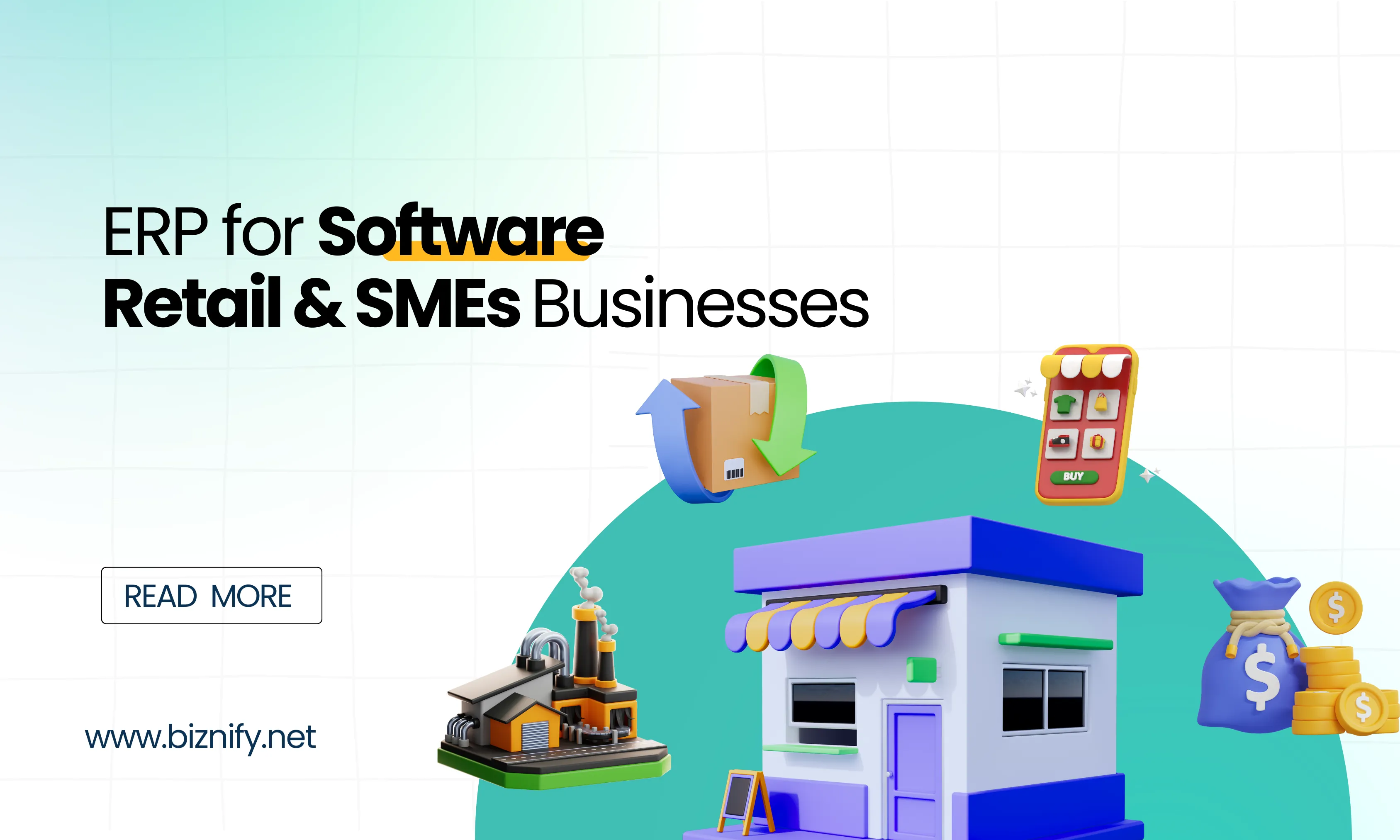
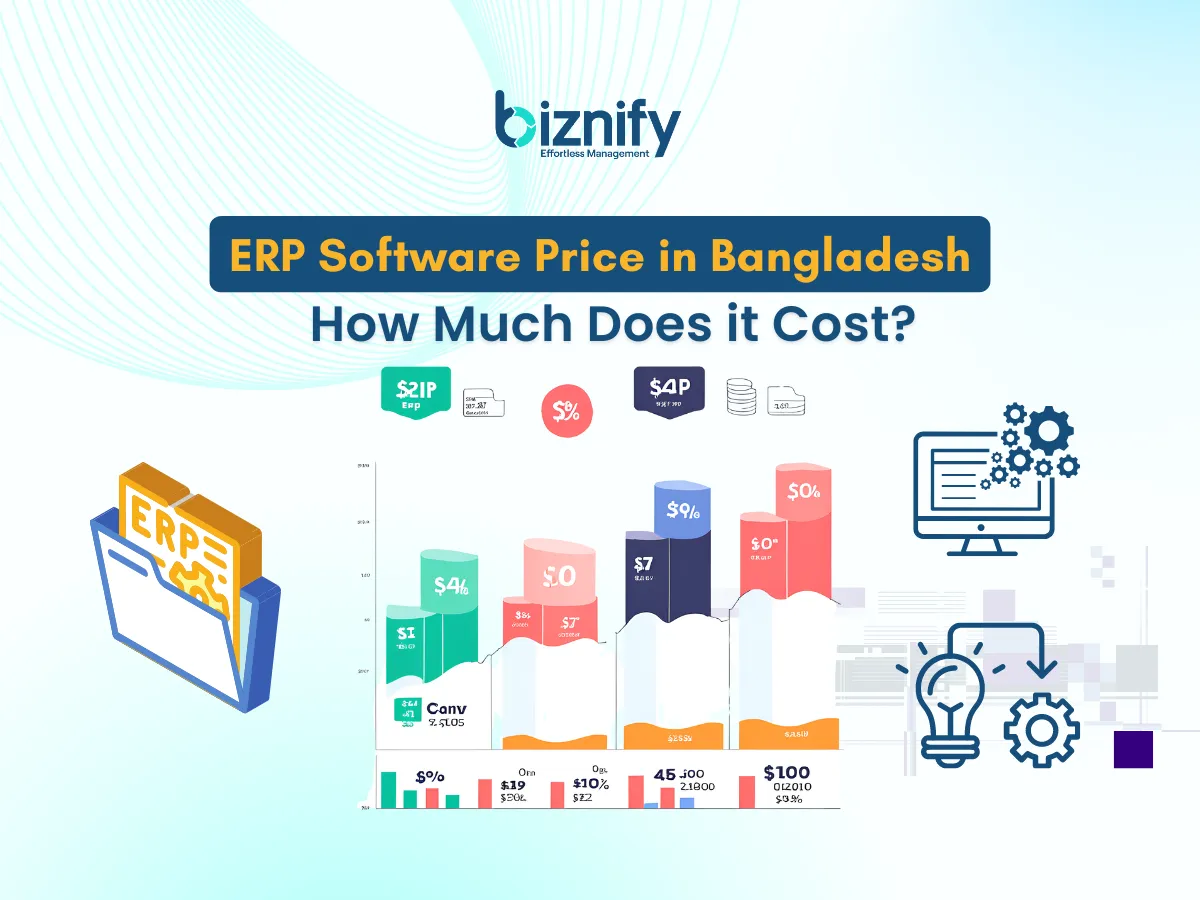
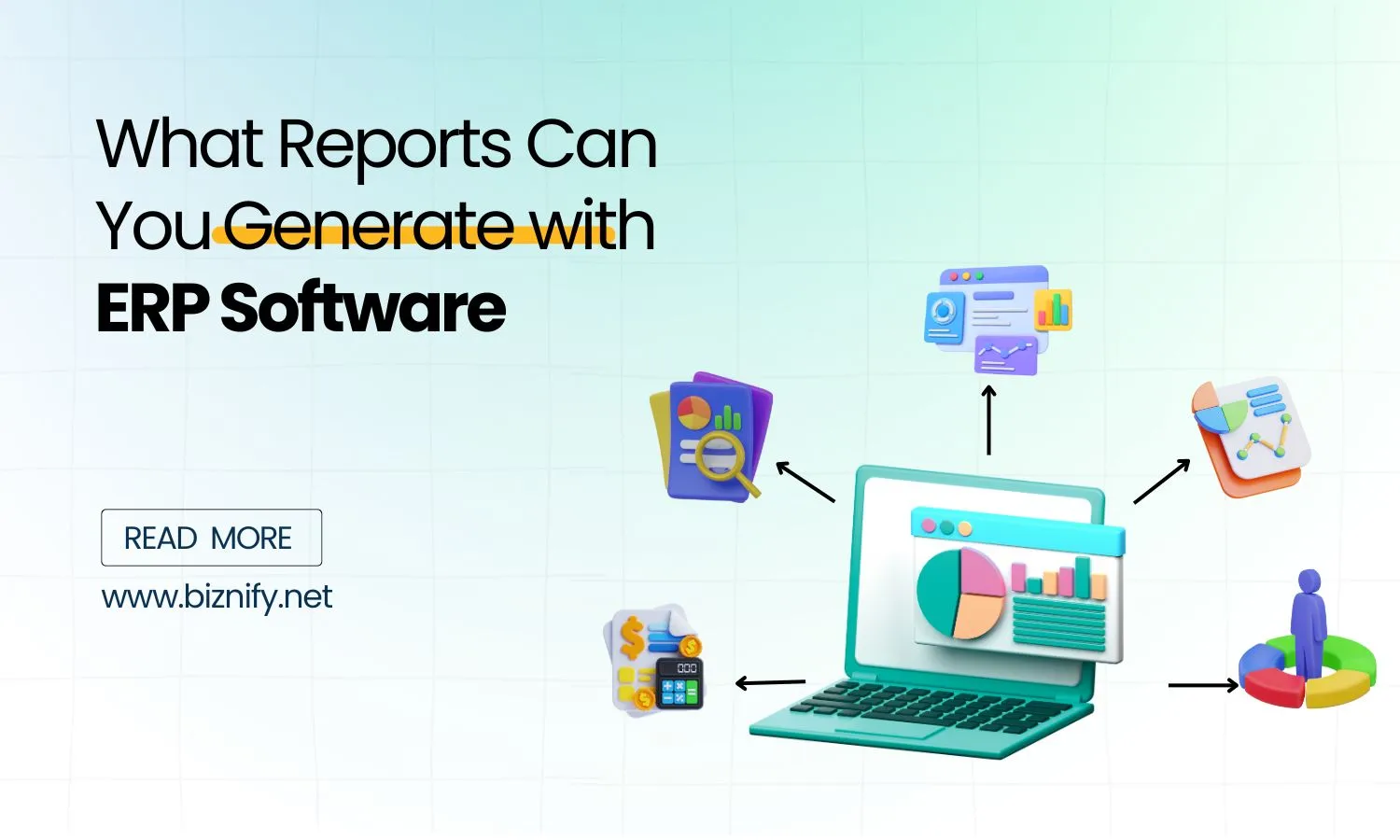
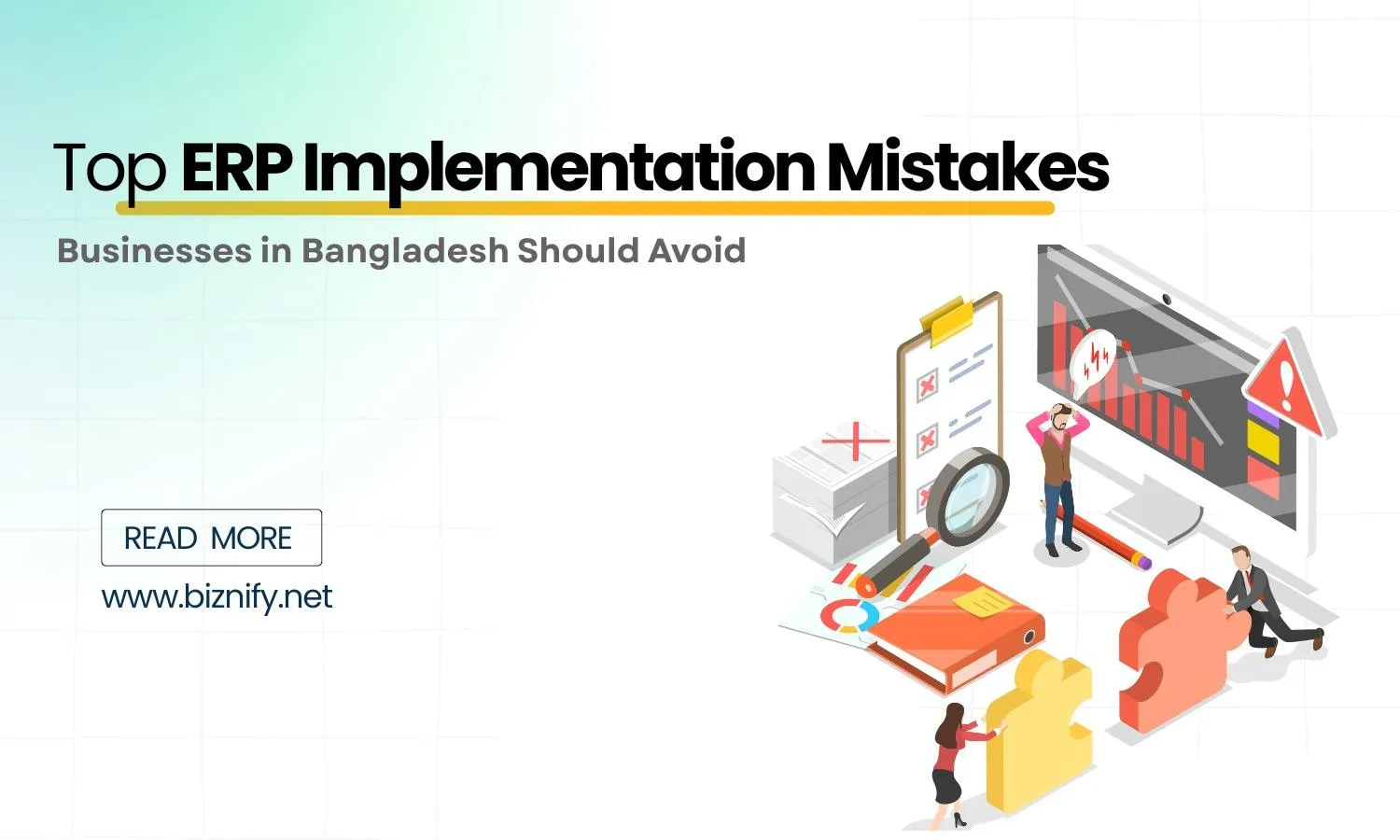
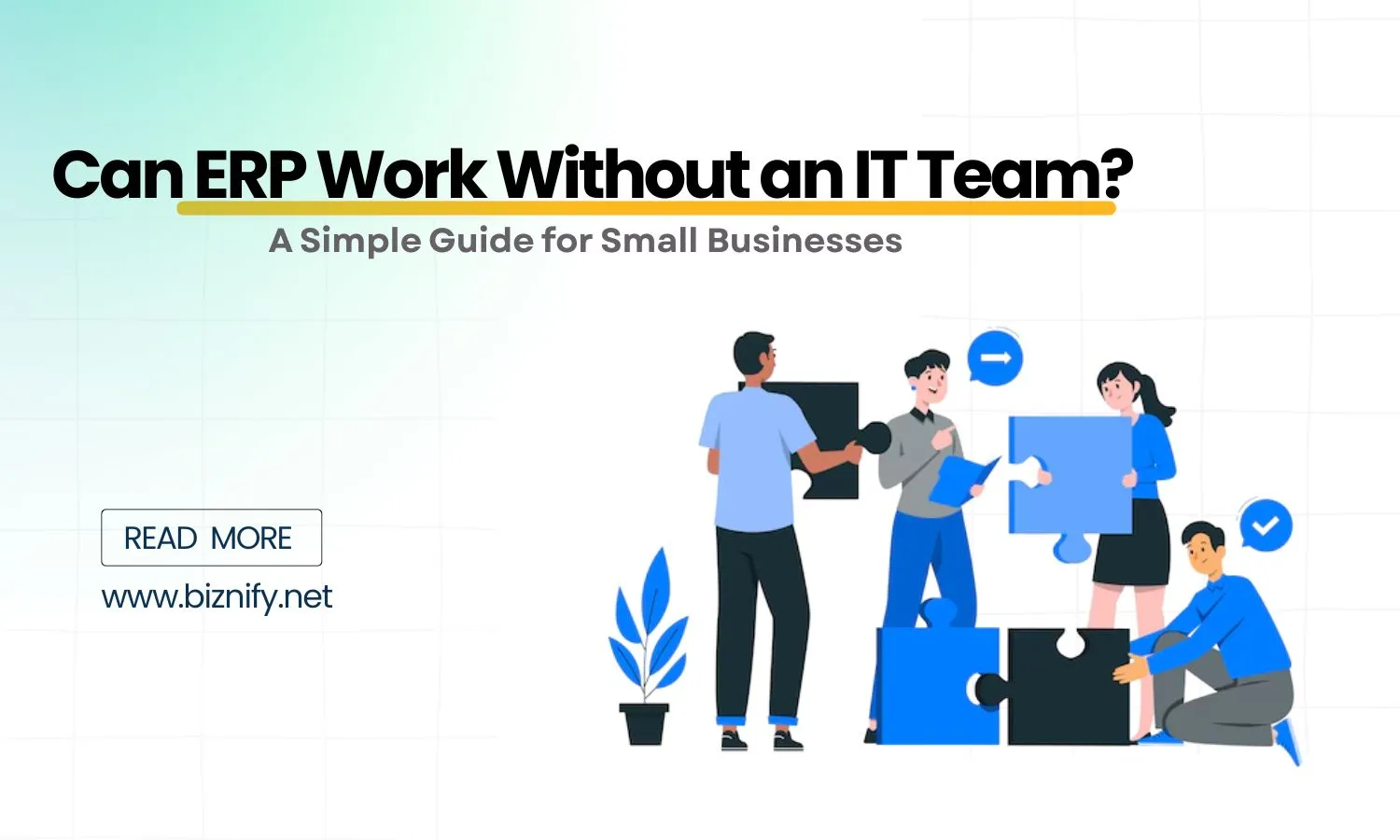
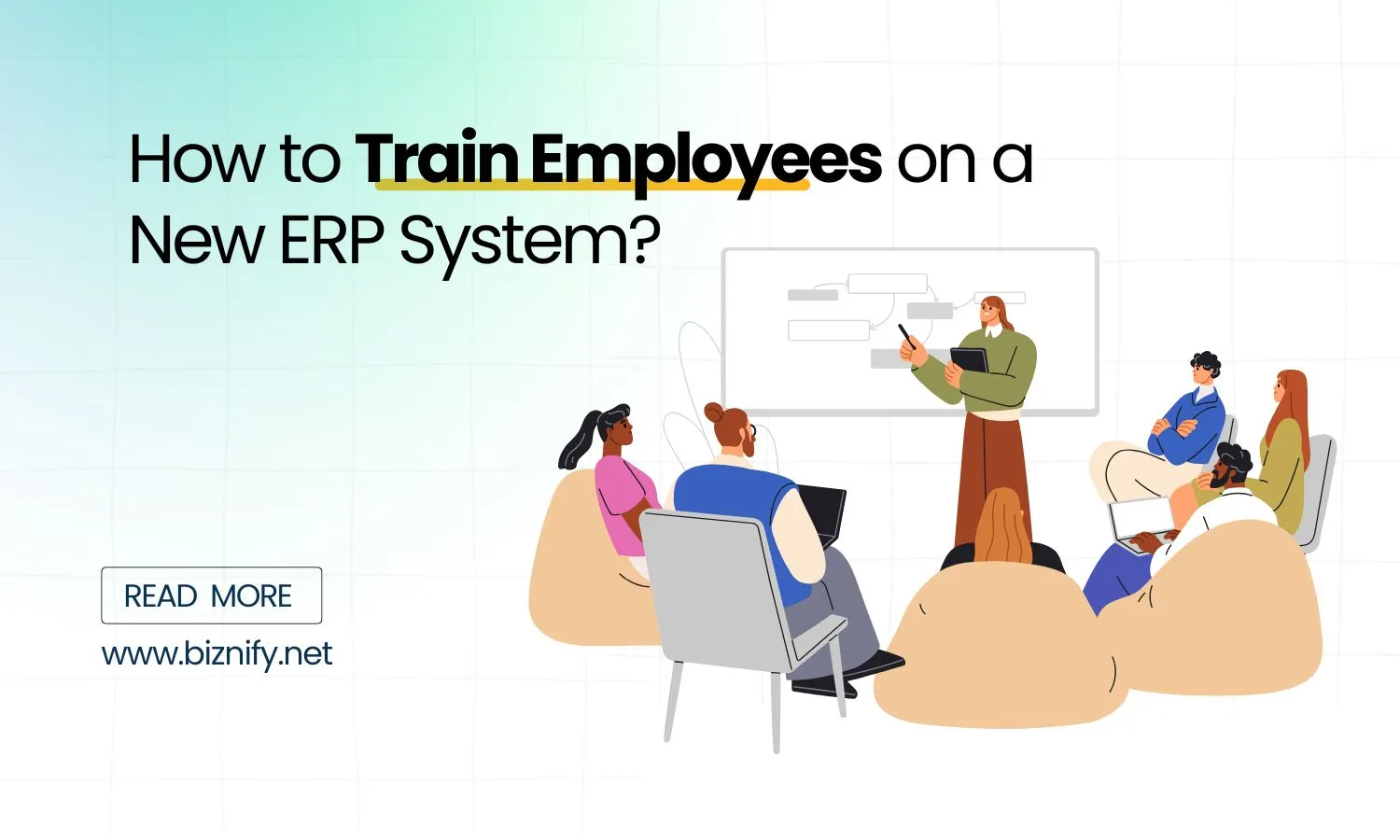
Just exploring ERP or unsure which modules you need? The Biznify team’s here with straight answers.